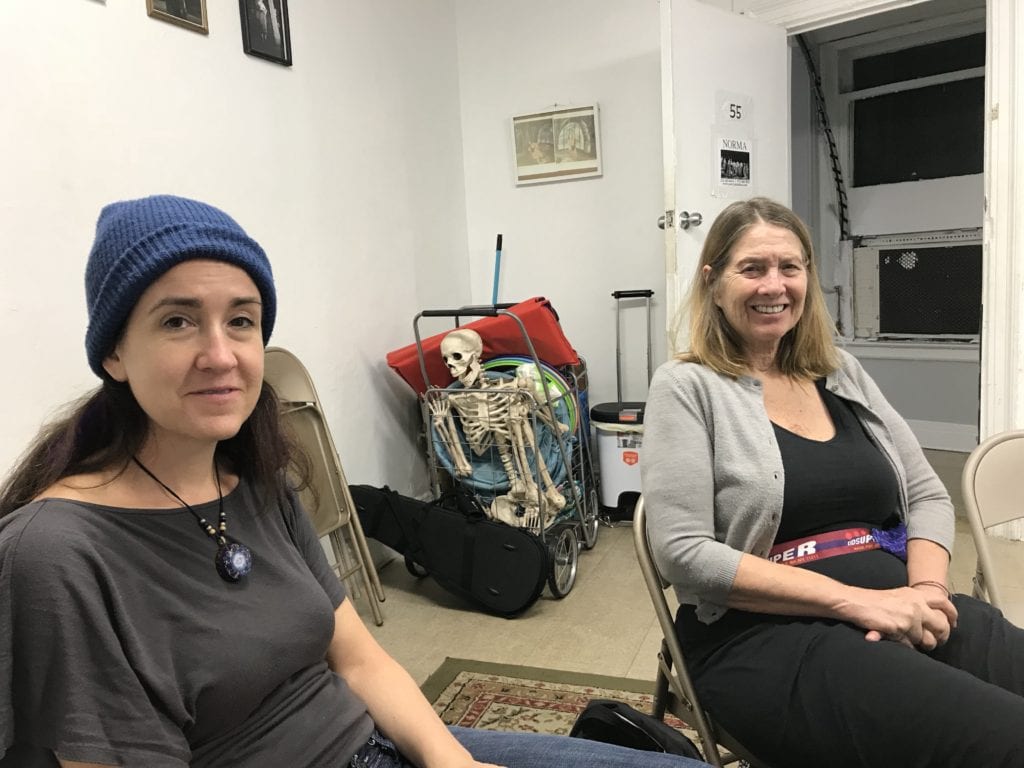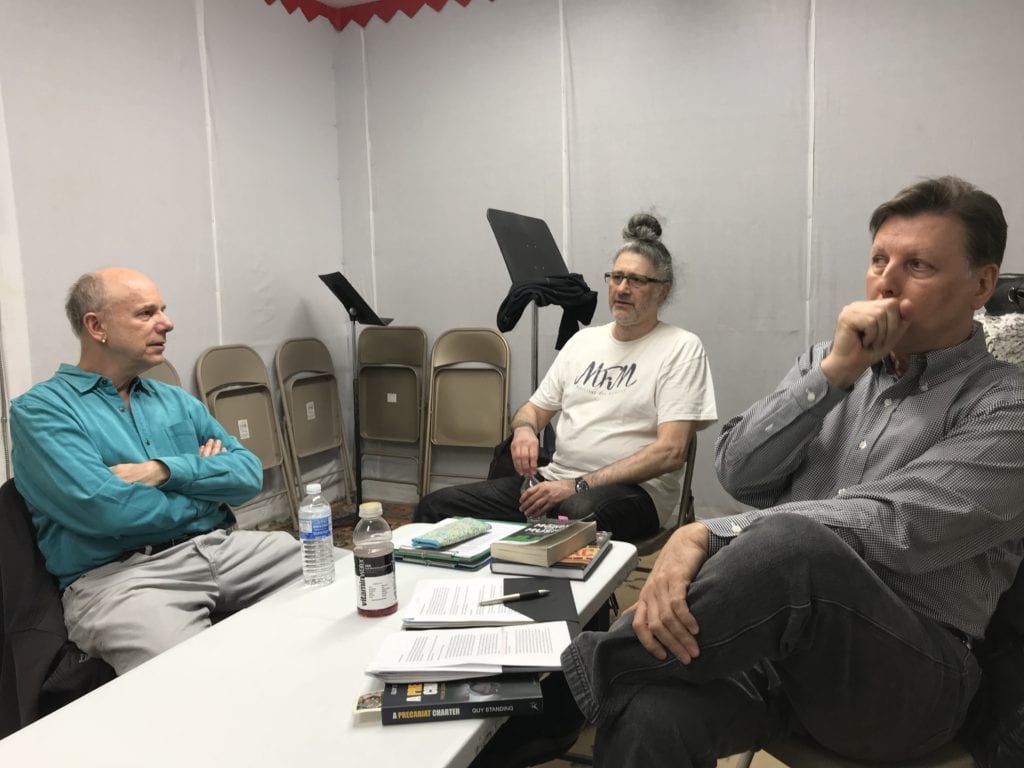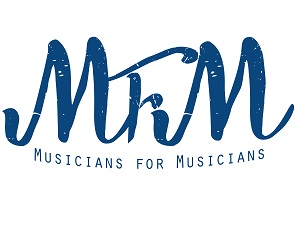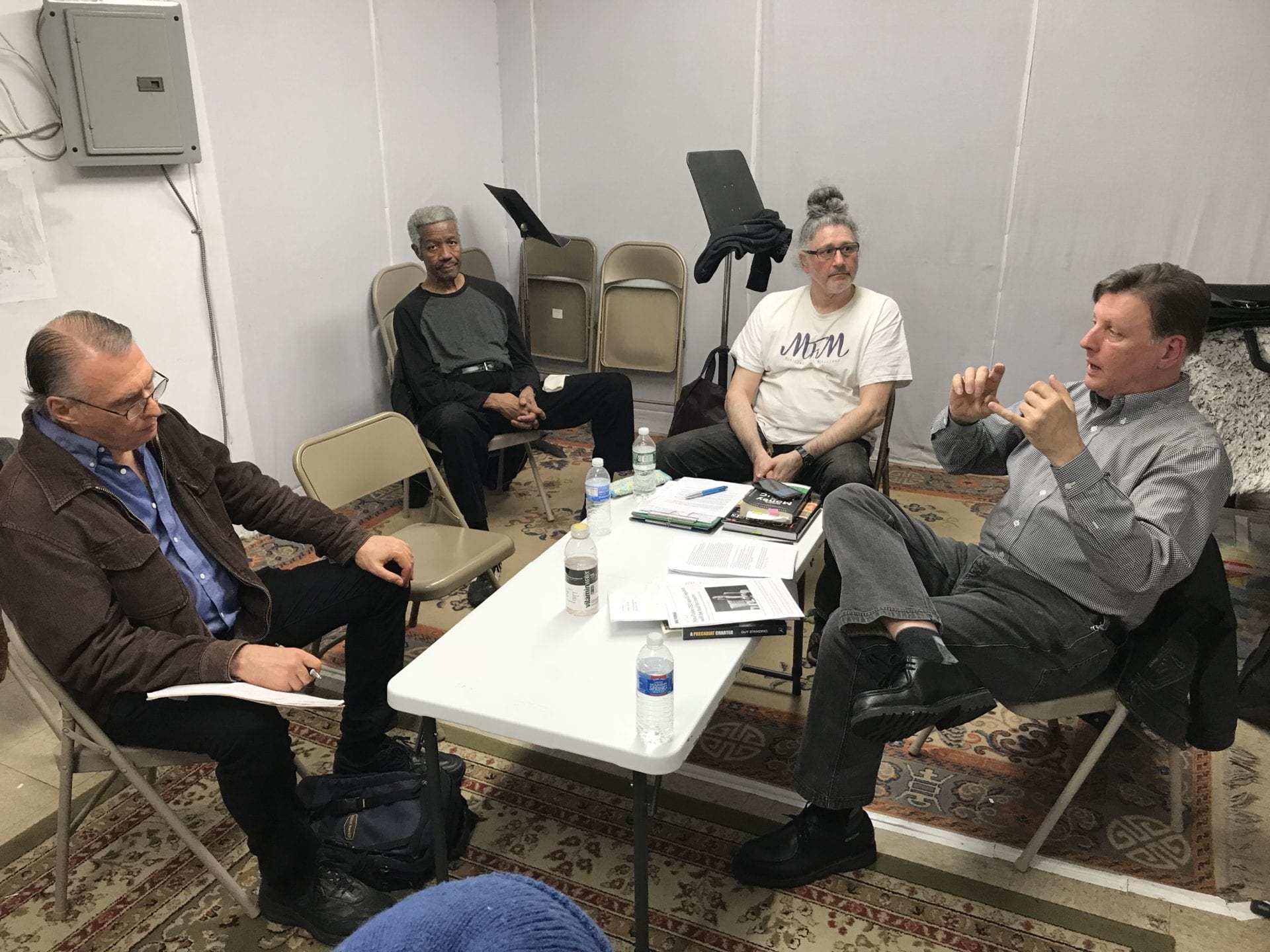Report by Dawoud Kringle (with Ken Hatfiled)
MFM held its 8th Public Musician Forum in New York on Tuesday, October 23rd, 2018. The meeting was run by jazzman Billy Harper (MFM Board member) and Sohrab Saadat Ladjevardi (MFM President). Saadat began with suggesting that the meeting adhere to a simple agenda.
1. Discussion of what needs to be done after the Music Modernization Act (MMA) victory becoming law October 11th. Reminding the MFM members of the mid term elections in November and the 2018 MFM Annual Membership Meeting in December. Speaker: Ken Hatfield (MFM AC member) assisted by Saadat,
2. The presentation of a contract for performing and touring musicians. MFM supporter Roger Blanc will lead the discussion.
3. Dawoud Kringle‘s presentation of MFM’s digital magazine / newsletter DooBeeDooBeeDoo NY. Kringle is along with Saadat the main contributor of this on-line magazine.
4. Discuss how MFM can make it easier for musicians to come to the meetings and get involved in MFM business.
5. Give attending musicians the opportunity to speak about problems and issues they have had recently.

After the meeting opened, Hatfield spoke (audio file here) in considerable detail on what we need to focus on now that the Music Modernization Act has passed:
The first was the Mechanical Licensing Collective (MLC). The MLC will distribute the money that the DSPs (Digital Service Providers), ISPs (Internet Service Providers) and various streaming services (e.g. Spotify) will pay us musicians for the uses of our music / content. The proposed configuration of this collective is: ten publisher members and four writer members (with the publishers wanting to choose who the writer representatives will be). The monies are to be split 50 / 50 between publishers and writers. It makes sense that the MLC be configured accordingly.
The MLC will operate under a five year charter granted and renewed by the Library of Congress. The music community can monitor it and offer comments on the Library of Congress website regarding how the MLC performed. This means the configuration could be changed for the second five year charter to a more equitable configuration (such as the ideal seven publisher and seven writer members).
The MLC will have a database for storing information that identifies who owns the rights to the music. They will grant blanket licenses to the DSPs, streamers, and other services that are using / broadcasting our music in exchange for the fees they will pay the MLC. This database will be the “official” source for “correctly” identifying who gets paid for the various licensed uses the MLC will supervise. This will require all tracks to have ISRC codes and be registered with the Copyright Office of the Library of Congress as well.
The Case Act, Fair Pay Fair Play Act (FPFP), and the Classics Act will need to be monitored closely.
Probably the most important upcoming action concerns 512 reform of the Digital Music Copyright Act’s safe harbor provisions. Some other safe harbors have already been amended and/or repealed in FOSTA – SESTA (Fight Online Sex Trafficking and Stop Enabling Sex Trafficking act) as well as Article 13 recently passed by the E.U. Parliament. 512 needs to be amended because it gives the DSPs immunity from illegal activities perpetrated on their platforms by the users of their platforms (such as copyright infringement). Reform could stop or limit such activities by requiring mandatory adherence to take down notices.
Two attempts to interfere with our efforts to fix these inequities are troublesome and need to be monitored closely:
(1) The USMCA (United States Mexico Canada Agreement: Trump’s re-branded version of NAFTA) – is purported to contain permanent protection for these safe harbor provisions (particularly section 512 of the Digital Music Copyright Act. Fixing it after ratification will require repeal of the entire treaty).
(2) The ALI’s (American Law Institute) “restatement of copyright” project. Since the MMA will open things up for more judges to hear PRO rate cases (a good thing), more judges will be needed. The judges are not likely to be experts on the complex nuances of copyright law. ALI, who are are hostile to copyright law, is writing a summarized cliff-notes version of copyright law to be used as a guide for judges hearing copyright cases. Big Tech friendly lawyers, academics and judges have called copyright “obsolete” and “a tax on culture”. They say that internet piracy is just another form of “promotion” which they claim stimulates innovation. Judges relying on a short hand description of copyright law written by a biased source, will doubtless undermine the foundations of copyright law by being less than impartial to content creators seeking redress for infringement of their rights to their own creations.
One important point Hatfield used to sum up the situation we are in is quite simple. Recording artists today have two paths to choose from. One: get signed to a big label and let them do the business (which generally means they will rob you blind). Or two: set up your own label and run things yourself. These are fundamentally the only two options available as the future of the music business unfolds.

Hatfiled recommended the following resources for more info:
MFM’s website
http://illusionofmore.com/
https://medium.com/@
https://www.grammy.com/
After a break, Saadat and Roger Blanc presented a template for a contract for MFM members to use. The contract, (created by Saadat and Dave Ruch) is specific to live performances, and between performers and venues / promoters. It offers a concise outline of a fair and ideal agreement between Purchaser and Performer. Items in the contract include (but are not limited to) date, time frame, and type of engagement, guarantee or compensation, method of payment contact information, and additional terms and conditions.
The idea of this contract sets a good precedent. It solidifies and defines the terms of a performance agreement, and empowers and protects the musicians. This is something all too often neglected by musicians; and leaves us vulnerable to messy misunderstandings.
A PDF of the contract will be found here.
There were a few minutes devoted to discussing the dichotomy of DooBeeDooBeeDoo NY function as both a magazine and MFM newsletter. Regrettably, though, time proved too short to go over the last three items on the agenda. The depth of the first two items demanded thorough discourse.
But the meeting was productive, informative, and a lot of fun.

